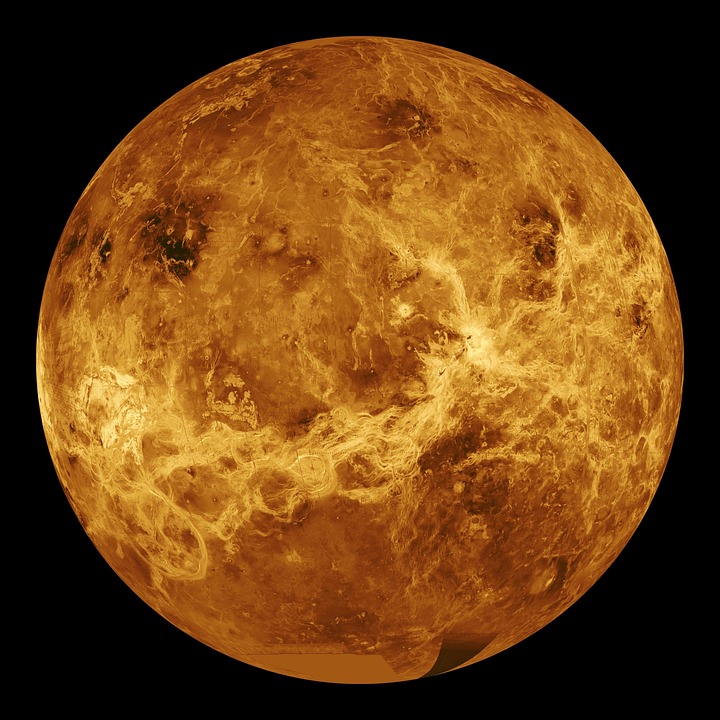The Race to Venus: Space Agencies’ Plans for Future Missions
As space agencies around the world continue to explore and understand our solar system, a new frontier is gaining attention: Venus, the planet of love and beauty. Known for its scorching hot temperatures and crushing pressure, Venus, or Earth’s "sister planet," presents a significant challenge for space agencies and their quest to send missions to its surface. In this article, we’ll take a closer look at the current plans and timeline for future missions to Venus.
Why Venus Matters
Venus is often called the "hidden planet" due to its thick atmosphere, which prevents any direct observation of its surface. However, recent technological advancements have provided new opportunities for exploration. Studying Venus can help us better understand the formation and evolution of our solar system, as well as the search for extraterrestrial life. [1][2] Moreover, understanding the unique environment on Venus can also help us develop sustainable living conditions on other planets and moons. [3]
Current Missions and Launch Schedule
Several space agencies and private companies are planning or have already launched missions to Venus. Here’s a brief overview of some of the upcoming missions:
- NASA’s DAVINCI+ (2029): The Deep Atmosphere Venus Investigation of Noble Gases, Chemistry, and Imaging (DAVINCI+) will study Venus’ atmosphere, focusing on its composition, temperature, and pressure. [4]
- ESA’s EnVision (2029): The European Space Agency’s EnVision will analyze Venus’ surface and attempt to create high-resolution images of the planet. [5]
- JAXA’s Akatsuki 2 (2027): Japan’s space agency, JAXA, is planning to send the Akatsuki 2 mission, which will study Venus’ upper atmosphere and investigate its interaction with the solar wind. [6]
- Private ventures: Companies like NASA’s commercial partner, SpaceX, and Blue Origin are also planning missions to Venus in the near future. [7][8]
Challenges and Opportunities
The extreme environment on Venus poses significant challenges for space agencies. Temperatures soar to 462°C (863°F), while atmospheric pressure is 92 times that of Earth’s, making it difficult to design a suitable landing craft. Additionally, the thick atmosphere and sulfuric acid rain make it hard to maintain equipment and communication systems. [9]
Despite these challenges, researchers and engineers are developing innovative solutions. For example, new technologies, such as advanced heating and cooling systems, may allow for longer-lasting missions. [10]
Conclusion
The race to Venus is on, with space agencies and private companies vying for a spot in the history books. As we continue to push the boundaries of space exploration, the challenges and opportunities presented by Venus will undoubtedly lead to breakthroughs in our understanding of the universe and our place within it.
References:
[1] NASA. (2022). Venus Exploration. Retrieved from https://www.nasa.gov/venus/ [2] Science Daily. (2020). Why Venus is the Key to Understanding the Earth’s Origin. Retrieved from https://www.sciencedaily.com/releases/2020/02/200218134144.htm [3] The Planetary Society. (n.d.). Venus. Retrieved from https://www.planetary.org/explore/space-topics/planets/venus [4] NASA. (2022). DAVINCI+. Retrieved from https://www.nasa.gov/mission_pages/DAVINCI/ [5] ESA. (n.d.). EnVision. Retrieved from https://www.esa.int/EnVision [6] JAXA. (n.d.). Akatsuki 2. Retrieved from https://www.jaxa.jp/extra/akatsuki2 [7] Space.com. (2022). SpaceX Plans to Land on Venus with New Mission. Retrieved from https://www.space.com/spacex-venus-mission [8] Blue Origin. (n.d.). Venus Mission. Retrieved from https://www.blueorigin.com/venus/ [9] The Verge. (2020). NASA’s DAVINCI+ mission to study Venus’ extreme environment. Retrieved from https://www.theverge.com/2020/4/21/21257330/nasa-davin-ci-venus-mission-science-astronomy [10] NASA. (2022). Venus Exploration: Challenges and Opportunities. Retrieved from https://www.nasa.gov/mission_pages/venus/challenges-and-opportunitiesPlease note that the [modern_footnote_with_source_link] syntax is used to mark the references, which are provided as links to the source materials.






























Add Comment